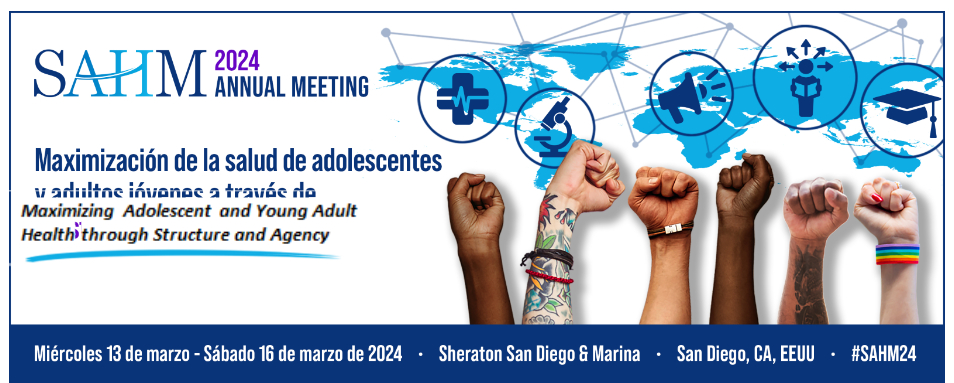Annual Meeting Update

November 2023

By Kari Harris, MD
Director of Programs
and
Chinwe Efuribe, MD, MPH
Associate Director of Programs
The program planning committee has been hard at work pulling together the upcoming conference events. We want to especially thank our Working Group Chairs for all the time and effort they have dedicated thus far! Thank you Amy DiVasta (Research Workgroup), May Lau (Educational Sessions), Gaya Chelvakumar (Youth Engagement), Maria Rahmandar (Hot Topics), Heather Austin (Networking and Career Development), and Nuray Kanbur (Plenary)! These leaders have really gone above and beyond this year in the amount of time they have spent planning so be sure to thank them and their working group subchairs and members!
In keeping with our theme-related essays, we want to share another perspective. Dr. Lauren Arnold Bell, MD, MPH, FAAP, is an Assistant Professor at the University of Tennessee Health Science Center where she practices as an adolescent medicine physician and academic researcher. Here are her thoughts on structure and agency as they apply with eating disorder and substance use care.
For people invested in supporting young people through the tasks of adolescence, including the work of identity development and increasing autonomy, the work of eating disorder and substance use treatment can feel tense. In most other areas of adolescent care, we work hard to support increasing the agency of adolescents and young adults. We love this work. We chose this field not to micromanage intake and output, not to constantly monitor our patients and control them 24/7 in a hospital but rather to give them the scaffolding they need to make decisions themselves that support their eventual transformations into happy healthy old people.
However, in eating disorder and substance use care, when the pathology is severe and we do not fully trust the decision-making capacity of the young person, we instead often turn to asking adjacent adults to increase structure and revoke agency. In family-based, Maudsley-style eating disorder care, we ask caregivers to initially take away the adolescents’ control of every aspect of their intake and output, restricting their exercise and activities and revoking decisional capacity at mealtimes. In substance use care, we push caregivers to set firm boundaries, controlling their financial stream, peer group and internet/phone access, and overall use of free time.
The requests we make to increase structure at home often lead to escalating tension at home, with young people fighting to preserve their autonomy. Caregivers are frustrated with the conflict that ensues and at times lack sufficient skills, strategies, and support to negotiate these overwrought waters. They do not tolerate the young person’s totally appropriate distress at this revocation of their autonomy and may jump to ask us to escalate the level of care at a time when a higher level of care is not what we deem necessary.
Caregivers are doing incredibly hard work at home. In order for this huge ask of increased structure in that setting, our systems of care must meet their needs in terms of providing enhanced access to support and education. This may be through establishment of 24/7 hotline or case manager access to help troubleshoot a conflict at home, creation of adolescent caregiver-specific peer support groups for mentorship by other experienced caregivers, or through facilitating classes to build caregiver skills at boundary-setting and enforcement. As adolescent providers we, too, want their adolescents and young adults to get back to a point of increased agency and autonomy. In these moments of increased tension and structure, we must make sure caregivers know we are collaborating with them in this difficult work – and we must show it by truly partnering with them to give them the assistance they need to get through the thick of it.
Thank you, Dr, Arnold Bell for this relevant perspective!
Gratitude is also in order to all of you for submitting nearly 300 educational sessions and research submissions this year. We are excited for the awesome learning opportunities we plan to offer this March! The Call for Hot Topics is underway through Dec. 11. You can learn more in this issue of SAHM Matters.
Finally, our thoughts and hopes are with those of you who are affected by the heartbreaking conflicts occurring across our communities.
Sincerely,

Kari Harris, MD
Director of Programs
kharris2@kumc.edu
 Chinwe Efuribe, MD, MPH
Chinwe Efuribe, MD, MPH
Associate Director of Programs
coefuribe@gmail.com

